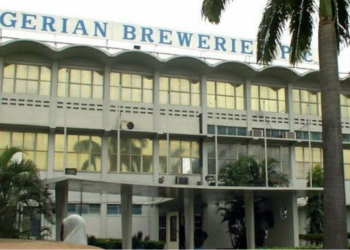The Finance Director of Nigerian Breweries Plc, Rob Kleinjan, has revealed that the increase in the brewer’s costs of goods was due to the devaluation in naira and FX scarcity, which led to the increase in the cost of inputs such as sorghum and sugar, as they are not fully produced locally.
This disclosure was made during the Nigerian Breweries’ Fact Behind Figures results presentation today.
However, Kleinjan explained that the increase in cost could not be fully attributed to currency devaluation and foreign exchange scarcity, which exerts pressure on imported input materials.
He said the increase in Nigerian Breweries’ costs of goods sold, as reported in its unaudited financial results, could also be linked to the volume of goods sold, as the company’s sales volume in Q3 increased by almost the same percentage as the cost of goods sold.
However, Mr. Kleinijan reiterated that to mitigate further losses, it was important for the company to focus on the supply chain and seek ways to mitigate price increases.
What they are saying
The Managing Director of Nigerian Breweries, Mr. Jordi Borrut, while speaking at the virtual event said:
“In 2020, the results of Nigerian Breweries were adversely impacted by COVID, VAT increase, FX devaluation and scarcity of foreign exchange. The year started with a promising 1st quarter, which was heavily impacted in Q2. The Nigerian market, however, rebounded in Q3.”
Mr. Rob Kleinjan, while explaining the factors behind the increase in Nigerian Breweries’ cost of goods sold in the first nine months of 2020, said:
“It is also clear that the increase in cost is due to the devaluation and the FX scarcity which has put pressure on our input cost. If you look into the main elements we use, which are sorghum and sugar – they are not fully produced locally, so when the currency is devalued, the prices of these inputs will soar.
“That’s why it’s important that we are focused on the supply chain, and seek for ways we can mitigate any of the price increases, because the increase in cost comes from the input prices, which come from FX scarcity.”





















